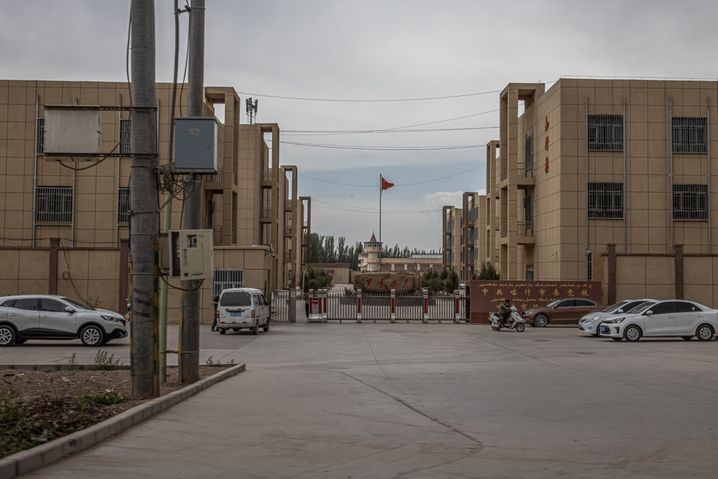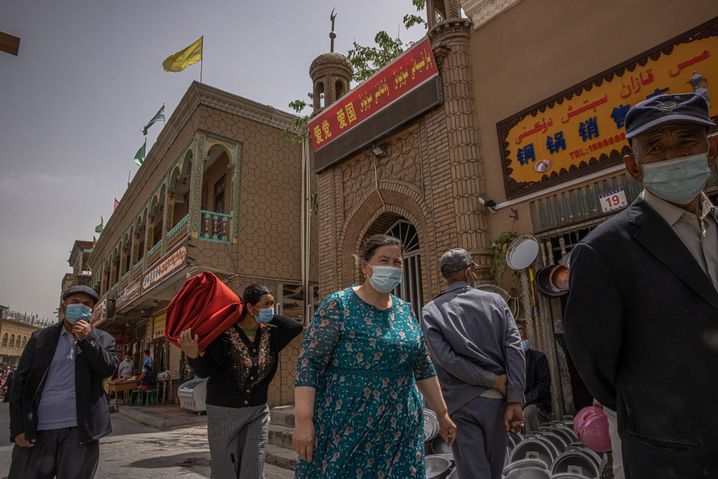In the Sinister Disneyland of Xinjiang: China's Ongoing Oppression of the Uighurs
May 27, 2021It isn’t long after landing in Urumqi on our flight from Beijing that we discover our first tails. The men from state security always look the same: Between 20 and 40 years of age, physically fit enough to follow their targets for a couple of hours at a time, and dressed in a baseball cap, facemask and sunglasses. Their favorite accessory is a men’s handbag.
As we step out of the arrivals hall, a man wearing a wine-red T-shirt stares at me for a few seconds before turning away and raising his smartphone to his ear. At the taxi stand, he is a couple spots behind us in line. When we get a car after a 15-minute wait, he steps out of line and wanders away speaking into his phone, likely passing along the license plate number of our taxi. We’ll see him again that afternoon, seemingly randomly running into him in the center of the city – population 3.5 million. He follows us at a distance of 20 to 30 meters. It’s all rather obvious, a message to us that we are being watched.
Such shadows will be our constant companions in Xinjiang. In Urumqi, they follow us in a metallic-brown SUV. In Shanshan, it’s a white VW. In Yarkant, we are able to pinpoint five men who follow us on foot and on a moped. One of them is clearly not Han Chinese, and we guess that he might be Uighur. We are sometimes able to shake them: In Urumqi, for example, we suddenly cross the street through stop-and-go traffic and enter a shopping center, before then going out the back entrance. We turn around at each corner and see nobody following us. Later, though, they’re suddenly there again. We can only assume that they found us with the help of cameras and facial recognition technology.
They follow us everywhere, but they don’t interfere – a rather reserved approach compared to years past. Still, normal reporting isn’t possible under such conditions. Normally, we would speak with community leaders, clerics and intellectuals, but internal government documents – the so-called Karakax List – makes it clear that Uighurs have been interned for far milder infractions than speaking with foreign journalists. Things like phoning family members abroad, wearing beards or simply being seen as “unreliable” by state agencies. We don’t want to put anybody in danger. Our discussions are limited to random encounters and our impressions are thus inevitably incomplete.




